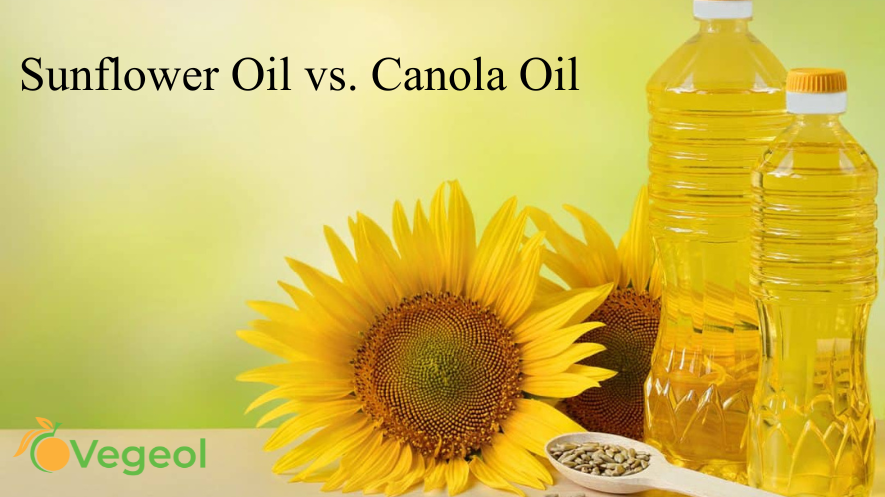Learn about the advantages of sunflower oil, a nutritious, multipurpose cooking oil that is high in antioxidants and vitamins. It has a light, neutral flavor and is great for frying, baking, and salad dressings. It also provides several health benefits, such as heart health support and skin nourishment. Find out more about its nutritional worth, applications, and ways to include it in your regular diet.
Picking the right food oil can have a big effect on your health. With so many options available, it’s important to understand the differences between them. This piece compares sunflower oil with other popular oils like olive, canola, and coconut oil to determine which is the healthiest choice for you.
Nutritional Profile of Sunflower Oil
Sunflower oil is derived from sunflower seeds and is commonly used in cooking and frying. It is rich in vitamin E, delivering around 28% of the daily required amount in one tablespoon. Sunflower oil contains polyunsaturated fats and has a high smoke point, making it suited for high-temperature cooking. However, it lacks large levels of omega-3 fatty acids, which are necessary for heart health.
Sunflower Oil vs. Olive Oil
Nutritional Comparison
Olive oil, especially extra virgin olive oil, is recognised for its health advantages. It contains saturated fats, which are proven to reduce harmful cholesterol levels and minimise the risk for heart disease. Olive oil also has antioxidants and anti-inflammatory qualities, which can boost general health.
Health Impact
While sunflower oil is strong in vitamin E, olive oil delivers more set profile of beneficial fats. Studies reveal that the oil’s mixed lipids are more beneficial in promoting heart wellness. Therefore, if cardiovascular advantages become a priority, oil from olives may be the superior alternative.
Sunflower Oil vs. Canola Oil

Nutritional Comparison
Sunflower oil has a high vitamin E content, whereas olive oil has a more evenly distributed profile of good fats. Research indicates that the monounsaturated fats in olive oil have a greater impact on heart health. Therefore, olive oil might be a better choice if cardiovascular advantages are important to you.
Health Impact
Canola oil has a balanced profile of fatty acids that offers it an advantage over sunflower oil despite both oils having high smoke points. Canola oil has omega-3s, which are especially good for lowering inflammation and promoting brain function. Canola oil might be a better option for people looking for a more complete nutritional profile.
Health Benefits of Sunflower Oil
Because sunflower oil has a high vitamin E level, it has various health benefits. As an antioxidant, vitamin E shields cells from harm. Sunflower oil’s polyunsaturated fats have the potential to decrease cholesterol and lower the risk of heart disease. Sunflower oil also has anti-inflammatory qualities that help with arthritis and other related illnesses.
Cooking Uses and Smoke Points
The smoke point is an important factor to take into account when choosing a cooking oil. Sunflower oil is perfect for frying and higher-heat cooking because of its high smoke point, which is around 440°F (225°C). Extra virgin olive oil has a low smoke point than other types and is therefore more suited for frying or topping salads. Canola oil has a smoke point that’s comparable to sunflower oil, making it adaptable to a variety of cooking techniques. Although coconut oil has an elevated smoke the point, not all meals will pair well with its unique flavour.
Conclusion
Coconut oil, canola oil, olive oil, and sunflower oil all have different nutritional qualities and advantages for your health. Your decision should be based on your personal cooking requirements and health objectives. Canola oil has a well-balanced nutrient profile, coconut oil has special advantages but should be used sparingly, and olive oil is great for heart health. Sunflower oil is still a nutritious and adaptable choice because it is high in vitamin E and can be used in high-heat cooking.
